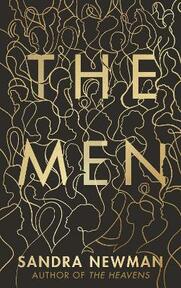On another dystopia – Pamela Paul in NYT:
‘Imagine a world in which all the men disappear from the planet in a single moment: Planes they were piloting are left unmanned (literally), their female passengers abandoned in midair; men in bed with their girlfriends mysteriously vanish; boys in the playground dematerialize before their mothers’ eyes. The girls and women left behind are given no apparent reason for the sudden absence of half the world’s population.
Now imagine another world — one in which an author proudly announces her forthcoming novel only to be attacked online for its fantastical premise. Months before the book comes out, it is described on Goodreads as a “transphobic, racist, ableist, misogynist nightmare of a book.” On Twitter, people who have yet to read the novel declare that it’s their responsibility to “deplatform” it. When one of the author’s friends, herself a writer, defends the book, she is similarly attacked, and a prominent literary organization withdraws her nomination for a prize for her own book.
Only one of these nightmare scenarios is real.
The first describes the premise of a novel that comes out this week: “The Men” by Sandra Newman. The second is what actually happened when the premise of Newman’s book was revealed.’ In this fictional world, where the presence of a Y-chromosome dictates who disappears, a strictly biological definition of “man” is viewed as a moral wrong. The main characters are horrified by the fate of the transgender women who get swept up (“unjustly condemned”) and sympathetic to the plight of the transgender men who remain (one character is “paralyzed by the idea that transgender people were still here”).
But even if Newman’s novel had “erased” transgender people, it doesn’t deserve to be denounced outright. Fiction wasn’t meant to be run through some kind of moral purity test.
“There seems to be a misunderstanding of what fiction or literature is for,” Lauren Hough said in a phone interview. Hough — for those who didn’t brave the tempest over “The Men” on Twitter — is the author of “Leaving Isn’t the Hardest Thing,” a memoir whose Lambda Prize nomination was rescinded when she forcefully defended Newman’s novel on Twitter. “People seem to want books to be good or evil, rather than exploring a question. Now no one can play this thought experiment again.”
Yet Hough, whose memoir details the author’s experience growing up in a sex cult and her subjection to abuse, rape and homophobia, has no regrets about stepping into the fray. “This happened in the literary world,” she said. “If you’re not going to defend literature, then what’s the point?”’
What a sour irony that a dystopian fantasy brought a dark reality one step closer. In this frightful new world, books are maligned in hasty tweets, without even having been read, because of perceived thought crimes on the part of the author.’ Read the article here.
The thought crime, just these two words are dystopian enough.
Die Gedanken sind frei, not any longer.
The desire to purify the world is stronger.
